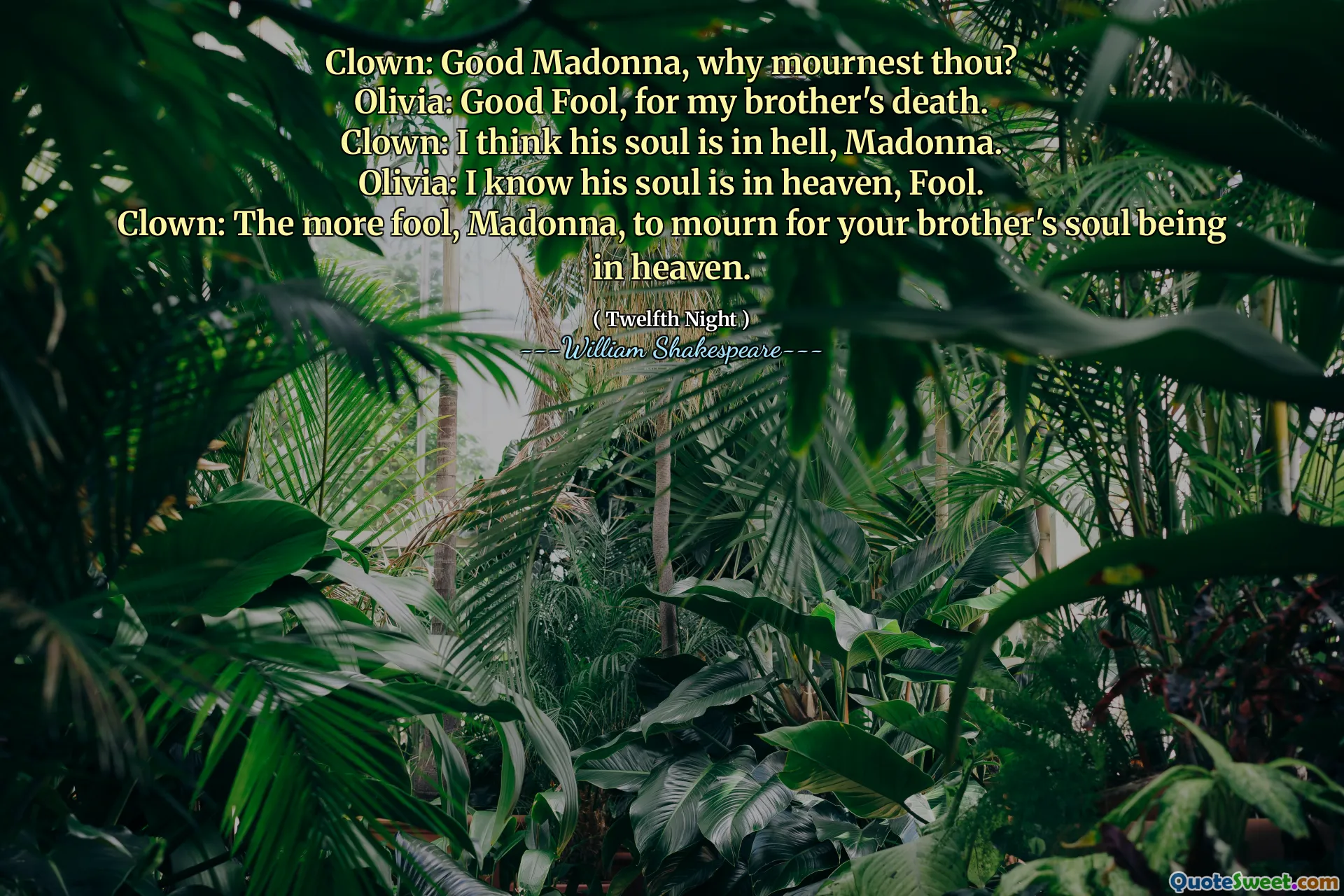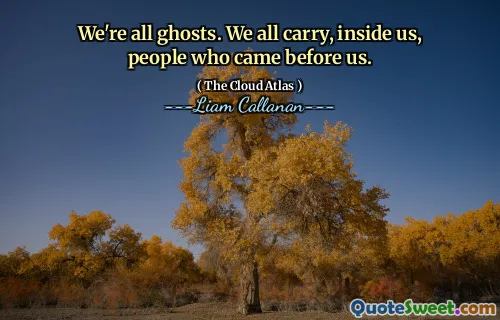
Clown: Good Madonna, why mournest thou? Olivia: Good Fool, for my brother's death. Clown: I think his soul is in hell, Madonna. Olivia: I know his soul is in heaven, Fool. Clown: The more fool, Madonna, to mourn for your brother's soul being in heaven.
This exchange between the Clown and Olivia from Shakespeare's "Twelfth Night" is rich in its exploration of grief, wit, and the nature of loss. The Clown's somewhat cheeky and irreverent remarks offer a sharp contrast to Olivia's sincere sorrow for her deceased brother. It highlights the tension between mourning the physical loss and the belief in the spiritual welfare of the departed.
Olivia mourns deeply even though she believes her brother's soul rests in heaven, suggesting that emotional pain is not always eased by hope or faith in an afterlife. The Clown’s retort—that it’s foolish to mourn for someone whose soul is safe—challenges the depth of human feelings, showing how grief transcends rational consolation. This dialogue reflects Shakespeare’s masterful ability to blend humor and gravity, providing insight into the human condition. While the Clown uses wit to mask the uncomfortable truths of death, Olivia embodies the heart’s complicated response that logic alone cannot soothe.
Moreover, this interaction touches on the role of fools in Shakespearean plays: they often speak truth wrapped in humor, encouraging audiences to reflect on societal norms or individual emotions. It’s a reminder that beneath levity, there can be profound wisdom. The quote invites us to consider how people cope with loss, the conflicts between reason and emotion, and how tragedy and comedy coexist in human experiences. The rich interplay between characters embodies the brilliance of Shakespeare's storytelling, where even grief can hold a touch of unexpected insight.






